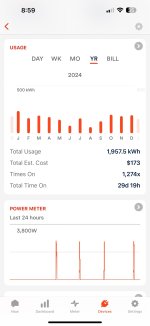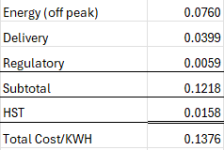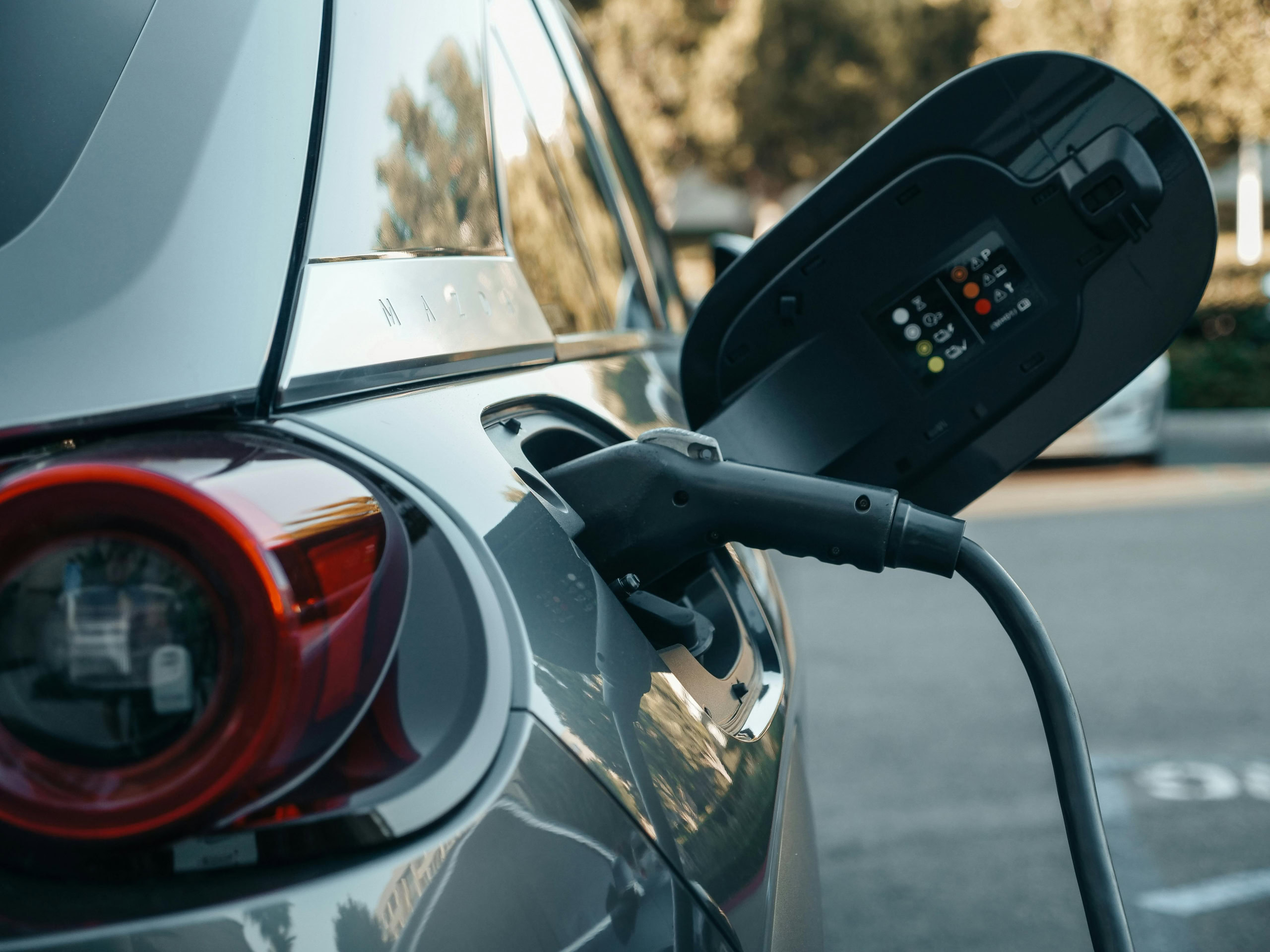Before my last 3 purchases, I looked at EVs. New EVs don’t make economic sense, used come with too much risk.
Not a much as the internet would have everyone believe. There's much FUD out there. Remember, they all have 8 year/160,000km warranties on all the expensive EV bits.
Warning: Long reply ahead, but lots of facts.
I think I paid something like $11K for my 2011 Volt IIRC in Jan 2018, and with electricity costing so much less vs gas on a per km basis, the 100,000km I've put on the car now has almost paid for itself in savings instead of having just thrown that depreciation away.
Let's do some math.
If I'd bought something comparable that burned between 7-8L/100km (7.5L/100km average) over those 100,000km I'd have burned , what, for the last 5 years, say $1.30/L?
$9750 in gas. Let's say $10,000. It wouldn't take much cold weather or crappy city driving where that average goes up to 9-10L/100km to push that up to $11,000.
Looking back through my energy tracker attached to my car charger for my car, my highest ever consumption year was 2840kwh in the year (2019), with others being between 2200 and 2400. 2020 was only 1877 the whole year, but yeah, Covid - didn't go out much/far of course.
So, say an average of 2400kwh a year at almost exclusively off peak rates, 7.6 cents per kwh (so 200kwh/month), that's $15/month in electricity costs for that same car. Yes, there are the delivery charges and such as part of our hydro bills,
but you pay a lot of those whether you own an EV or not just as part of having electricity service in your home.
So, lets
very generously say that the delivery fees blah blah doubles the cost to $30/month in electricity costs, which is probably way over exaggerating since our bills are rarely more than a few hundred bucks for both EV's plus the rest of our house.
So, 100,000km in 7 years of ownership now at $30/month = $2500 in electricity in 7. years of ownership, probably less..
So, $10,000 in gas vs $2500 in electricity. The car has saved me $7500 in the time period I've owned it. A little less than 3/4 of it's purchase price.
And this is a short range EV that rarely goes more than 50km or so a day and runs on gas almost exclusively. Yeah, I burned a few tankfulls of gas that have muddied the waters, but I've only changed the oil 3 times since I've owned it as it only needs to be done every 2 years as I've put so few gas miles on it.
Lets just say, 75% savings.
So, if we go back to the 2022 Ioniq we're looking at, at say $45K, and comparing it to a used 2022 Grand Cherokee (a vehicle many compare the Ioniq against size wise, inside and out) at also around $45K (seems about average looking at AutoTrader, $40 to $55K range), or a 2022 Ford Explorer at around the $40's (also a comparable size), and keep in mind the Jeep and Ford would average around 10L/100km, when purchase prices are basically the same,
it's still stupid to not buy the EV.
Why would nobody want to save 75% on operating costs?
This is not even taking into consideration the lack of oil changes, brakes, etc.
The "They cost too much!" arguments many people try to make is typically when people compare a new EV like a top of the line Ioniq5 at $80K and try to compare it against a $25K econobox instead of 1:1 comparing it against the $80K Summit version of the Cherokee again. People never want to compare apples to apples when they're trying to make anti-EV arguments, but then they'll go buy a $100,000 pickup instead and be just fine with it.




























